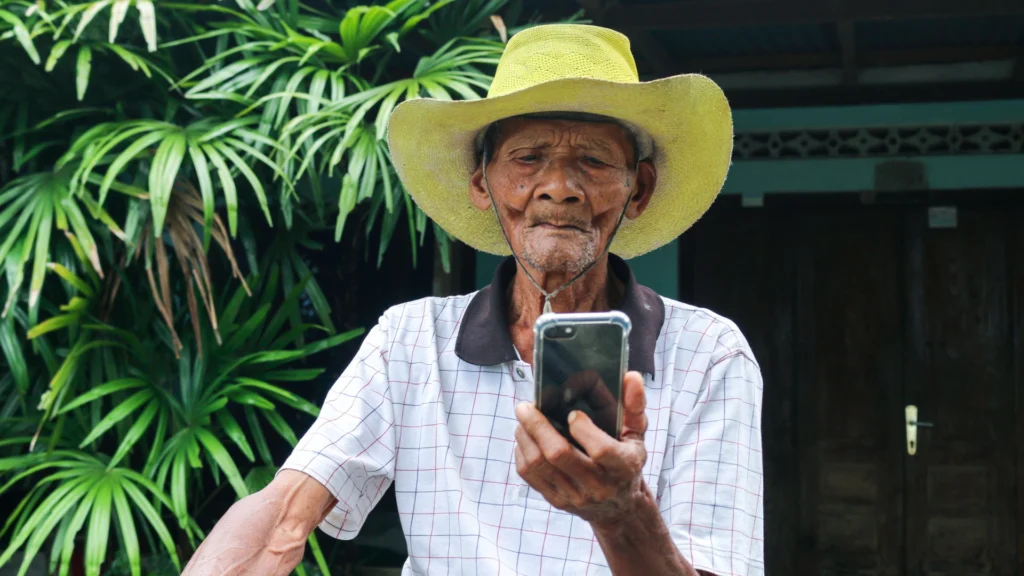-
The Silent Environmental Champion: How Digital Healthcare Shrinks Malaysia's Carbon Footprint
-
The Hidden Environmental Cost of Traditional Healthcare
-
Virtual Care: The Green Alternative
-
The Malaysian Experience: Why It Matters Here
-
Real Impacts: How Virtual Healthcare Makes a Difference
-
Beyond Travel: The Broader Environmental Benefits
-
Climate Change and Healthcare: The Malaysian Perspective
-
FEV3R: Leading Malaysia's Sustainable Healthcare Revolution
-
Technology and Tradition: Finding Balance
-
Corporate Responsibility: Businesses Leading Change
-
Small Changes, Big Impact
-
Embracing Cultural Change: The Malaysian Way
-
The Road Ahead: Embracing Digital Healthcare for Environmental Good
-
Taking Action Today for Tomorrow

Digital healthcare isn’t just changing how Malaysians receive medical care—it’s secretly becoming a powerful ally in our fight against climate change. As haze episodes grow more frequent and our carbon emissions continue rising, eco-friendly healthcare solutions are emerging as unexpected heroes in Malaysia’s sustainability journey.
The Hidden Environmental Cost of Traditional Healthcare
Every time a Malaysian drives to a clinic appointment, the planet pays a price. Think about it—thousands of patients daily traveling across the Klang Valley, Penang and Johor Bahru, sitting in traffic jams that stretch for kilometers, all to spend perhaps just 15 minutes with a doctor.
The numbers add up quickly: fuel consumed, emissions released and hours lost—all contributing to Malaysia’s carbon footprint while our beautiful rainforests continue shrinking.
But what if there was a better way? A way to get the care you need without the environmental guilt?
Virtual Care: The Green Alternative
Telehealth platforms like FEV3R are revolutionizing how Malaysians access healthcare while simultaneously providing eco-friendly healthcare solutions that help reduce medical travel significantly.
When you choose a virtual consultation over an in-person visit, you’re making a choice that benefits both your health and the environment. Consider these environmental impact factors:
- No petrol burned or public transport emissions released
- No need for air-conditioning extra clinical spaces
- Reduced paper waste from prescriptions and medical forms
- Decreased plastic waste from disposable medical supplies
Each virtual visit represents a small but meaningful step toward a better future with a low carbon footprint.
The Malaysian Experience: Why It Matters Here
Malaysia faces unique environmental challenges. Our rapid development has come with significant costs to our natural heritage. From the haze that blankets our cities to the flooding that increasingly disrupts our communities, we’re experiencing the effects of climate change firsthand.
In busy urban centers like KL and Penang, where traffic congestion is a daily struggle, the option to see a doctor from home isn’t just convenient—it’s an environmental necessity.
Rural Malaysians benefit even more. Imagine a family in Sabah or Sarawak no longer needing to travel hours for basic consultations. That’s not just better healthcare access—it’s a significant reduction in carbon emissions.

Real Impacts: How Virtual Healthcare Makes a Difference
Virtual healthcare consultations eliminate the need for physical travel to medical facilities, providing tangible benefits for patients and the environment. According to a 2021 study published in the Journal of Medical Internet Research, telemedicine appointments reduce transportation-related carbon emissions by an average of 51-70% compared to in-person visits (Holmner et al., 2021).
Research from the American Journal of Preventive Medicine shows that the average in-person medical visit generates approximately 1.8 kg of CO₂ emissions from transportation alone (Callister et al., 2021). Telemedicine eliminates these emissions entirely.
Plus, The Malaysian Journal of Medical Sciences has documented increasing telemedicine adoption rates across Southeast Asia, noting particular benefits for urban residents facing traffic congestion and those in rural areas with limited healthcare access (Hassan et al., 2022).
These verified benefits demonstrate how virtual healthcare can reduce environmental impact while improving healthcare accessibility.
Beyond Travel: The Broader Environmental Benefits
The environmental impact of digital healthcare extends beyond reduced travel:
Energy Efficiency: Traditional healthcare facilities require enormous amounts of energy for lighting, equipment, and climate control. Virtual consultations reduce this demand significantly.
Paperless Operations: From digital prescriptions to electronic medical records, telehealth minimizes the paper trail that traditional healthcare relies upon, preserving our forests.
Minimized Medical Waste: In-person visits often generate disposal items like gowns, gloves, and packaging. Virtual care eliminates this source of waste.
As Malaysia continues its digitalization journey, eco-friendly healthcare solutions represent an important opportunity to align our health systems with environmental goals. Every virtual consultation contributes to a healthcare model with a low carbon footprint.
Climate Change and Healthcare: The Malaysian Perspective
Malaysia’s commitment to reducing greenhouse gas emissions by 45% by 2030 requires action across all sectors, including healthcare. Our tropical climate makes us particularly vulnerable to climate change effects—from dengue outbreaks to extreme weather events.
When healthcare systems embrace digital solutions, they align with these national environmental goals. A typical clinic consultation in Malaysia might involve:
- A 10 to 15 minute drive through congested roads
- Waiting in an air-conditioned facility for another 30-60 minutes
- A 15-minute consultation
- Another 10 to 15 minute drive home
Replace this with a virtual consultation, and the carbon savings become obvious. For Malaysians living in areas with poor air quality—particularly during seasonal haze periods—reducing medical travel also means reducing exposure to pollutants.
FEV3R: Leading Malaysia's Sustainable Healthcare Revolution
FEV3R isn’t just another healthcare app—it’s Malaysia’s partner in building a sustainable healthcare ecosystem. By providing seamless virtual consultations, electronic prescriptions, and medication delivery, FEV3R helps Malaysians access quality care while practicing environmental responsibility.
The platform’s subscription model eliminates barriers to eco-friendly healthcare, making it easy for Malaysians to make environmentally conscious healthcare decisions. With features designed specifically for Malaysian patients, FEV3R understands local healthcare needs while addressing global environmental concerns.
Users can connect with qualified Malaysian doctors within minutes, receive prescriptions digitally, and have medications delivered to their doorstep—all without generating the carbon emissions associated with traditional care.
Technology and Tradition: Finding Balance
While embracing digital solutions, Malaysia’s rich healthcare traditions remain valuable. The personal touch of face-to-face consultations will always have a place in our healthcare system. The goal isn’t to replace traditional care entirely but to offer sustainable healthcare practices as an option for appropriate situations.
Routine follow-ups, prescription renewals, minor consultations, and monitoring of stable chronic conditions can often be handled virtually—preserving in-person capacity for situations that truly require physical examination.
This balanced approach respects both our environmental responsibilities and the importance of comprehensive care. It’s about making mindful choices that contribute to a low carbon footprint without compromising health outcomes.
FEV3R: Leading Malaysia's Sustainable Healthcare Revolution
FEV3R isn’t just another healthcare app—it’s Malaysia’s partner in building a sustainable healthcare ecosystem. By providing seamless virtual consultations, electronic prescriptions, and medication delivery, FEV3R helps Malaysians access quality care while practicing environmental responsibility.
The platform’s subscription model eliminates barriers to eco-friendly healthcare, making it easy for Malaysians to make environmentally conscious healthcare decisions. With features designed specifically for Malaysian patients, FEV3R understands local healthcare needs while addressing global environmental concerns.
Users can connect with qualified Malaysian doctors within minutes, receive prescriptions digitally, and have medications delivered to their doorstep—all without generating the carbon emissions associated with traditional care.
Corporate Responsibility: Businesses Leading Change
Malaysian companies are increasingly recognizing their role in environmental stewardship. By offering telehealth benefits to employees, corporations can:
- Reduce work hours lost to medical appointments
- Decrease corporate transportation emissions
- Demonstrate commitment to sustainability goals
- Support employee wellness and work-life balance
Companies partnering with platforms like FEV3R aren’t just providing a convenient benefit—they’re making a statement about their environmental values and contributing to national sustainability targets.

Small Changes, Big Impact
Making the switch to virtual healthcare might seem like a small change but when multiplied across Malaysia’s population, the environmental benefits become significant.
Every time you choose a virtual consultation over driving to a clinic, you’re contributing to:
- Reduced greenhouse gas emissions
- Decreased air pollution in our cities
- Lower energy consumption in healthcare facilities
- Minimized waste generation
These benefits align perfectly with Malaysia’s commitment to reducing carbon emissions and building a better future for generations to come.
Embracing Cultural Change: The Malaysian Way
Malaysians have always been adaptable, embracing new technologies while maintaining our cultural identity. Digital healthcare represents another opportunity to demonstrate this adaptability while honoring our values of community care and environmental stewardship.
From kampung to condo, Malaysians of all backgrounds can participate in this healthcare revolution. Young tech-savvy professionals might lead adoption, but platforms like FEV3R are designed to be accessible to all—including parents teaching their elderly parents how to connect with doctors remotely.
This cultural shift toward eco-friendly healthcare represents a uniquely Malaysian approach to modernization—one that values both progress and preservation.
The Road Ahead: Embracing Digital Healthcare for Environmental Good
The adoption of digital healthcare solutions isn’t just about convenience or even pandemic safety anymore—it’s increasingly about making responsible environmental choices. As Malaysia continues facing climate challenges, sustainable healthcare practices will become increasingly important.
By embracing platforms like FEV3R, Malaysians can receive quality care while contributing to national sustainability goals. The future of healthcare isn’t just digital—it’s green.
The next time you need medical advice or a prescription refill, consider the environmental impact of your healthcare choices. By selecting virtual care options, you’re not just taking care of your health—you’re helping to preserve Malaysia’s natural beauty and resources for future generations.
Healthcare that heals both patients and the planet? That’s the true promise of eco-friendly healthcare in Malaysia.
Taking Action Today for Tomorrow
Start small—schedule your next routine medical check-up virtually. Experience firsthand how technology can deliver quality care while helping you reduce medical travel and your personal carbon footprint.
As more Malaysians make this choice, our collective impact grows. Together, we can build a healthcare system that serves our needs while protecting the natural environment that sustains us all. The journey toward sustainable healthcare begins with a single virtual appointment.
Contact Us






